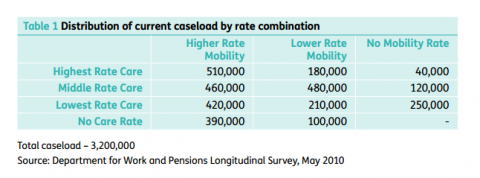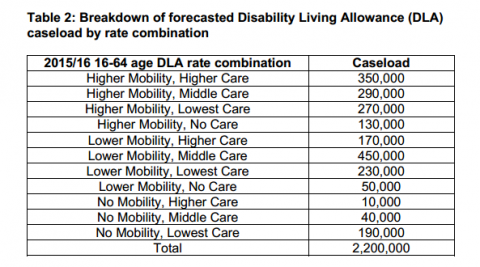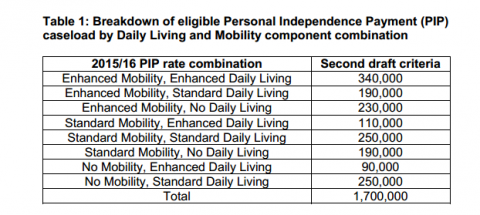Labour MP demands Prime Minister corrects the record over disabled benefits claims
The controversial issue of welfare reform featured at yesterday's Prime Minister's Questions, where Labour MP Joan Ruddock asked David Cameron:
"The Prime Minister is proud of his welfare reforms. [Hon. Members: "Hear, hear."] Can he look me in the eye and tell me he is proud of the decision to remove all disability benefits from a 10-year-old child who can hardly walk and who cannot toilet herself because she has cerebral palsy? Is he truly proud?"
To which the Prime Minister responded:
"This Government are not cutting the money that is going into disability benefits. We are replacing disability living allowance with the personal independence payment..."
However, a later press release from the Labour Party claimed the Prime Minister's reply was inaccurate. Joan Ruddock commented:
"The Prime Minister is completely out of touch. His Government is slashing Disability Living Allowance but at Prime Minister's Questions today he tried desperately to claim otherwise. The Prime Minister got this badly wrong. He should correct the record and admit the scale of his Government's cuts to disability benefits."
So does Ms Ruddock have a point?
The issue
The issue in question involves the Government's plan to replace the 20-year-old Disability Living Allowance (DLA) with the new Personal Independence Payment (PIP) from 2013. The plans have been subject to recent consultation.
DLA is paid out in two different components: a Mobililty Component and a Care Component. A recepient can be entitled to one or both of these.
People entitled to the Mobility Component can receive the Higher or Lower rate of the benefit. People entitled to the Care Component can receive the Higher, Middle or Lower rate. The number of people claiming each of these possible combinations is shown below:

The Government claims this system is 'complex' and difficult to understand. The PIP maintains the two components, naming them 'Daily Living' and 'Mobility', but offers only two rates for each: 'Enhanced' and 'Standard'. The rates at which this benefit will be paid have not yet been announced, so we can't compare how each group of claimants will fare after the change.
The effects
In the Government's second draft of the PIP criteria, they lay out estimates for how many people they expect to be on the new benefit by 2015/16 compared to those who would otherwise have been on DLA had it continued to the same year. The projections are based on a representative sample of 900 people.
They project a total caseload of 2.2 million recipients for DLA in 2015/16, although this is only for working age claimants:

For PIP, the Government project around 500,000 fewer claimants on the total caseload, broken down as follows:

They also concede that some people currently receiving DLA will lose out:
"It is likely that some disabled people with lesser barriers to leading independent lives will receive reduced support, but this has been justified by the policy aim to focus support on those with greatest needs."
The costs
The Government admit that one factor in bringing in the reform is the estimated savings of 20 per cent of the current DLA expenditure, as Minister Maria Miller confirmed in the House of Commons:
"One factor being considered in developing options for the new assessment is the need for reform of Disability Living Allowance to deliver savings of 20% of working age expenditure."
However, Ms Miller did not entirely see this as a 'cut':
"We will also continue to spend the same on PIP as we did last year on DLA, which is around £12 billion. So we are not cutting the amount that we are spending, just keeping it at the same level it is currently at. Without this reform, expenditure on DLA (for 16-64 year olds) would continue to rise in a way which the country is unable to afford in these difficult economic times."
So Ms Ruddock's comments that the Government is 'slashing' DLA seem to rest on the real terms drop in the allocated funds earmarked for the benefits. Similarly, the Prime Minister's comment that the 'Government is not cutting disabled benefits' is accurate if you only view the funding in nominal terms.
However Mr Cameron's claim is somewhat undermined by the DWP's own analysis, which records that it expects a 20 per cent saving (of £2.17 billion) and a cut in the caseload of 500,000 claimants.
While we don't know the details of the specific case pointed to by Ms Ruddock, it is possible that hers is one of those classed by the DWP as having 'lesser needs.'